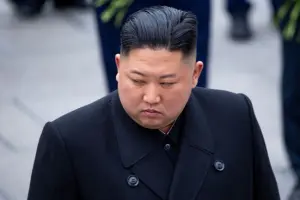Every January 1st, fireworks light up skies worldwide, streets pulse with excitement, and countdowns fill the air. Yet pause for a moment and ask—why does the arrival of 1 Muharram, marking the Islamic New Year, pass with such quietness, often barely noticed? For Muslims, this question stands as a reflective mirror — have we overlooked or neglected something vital?
The New Year: Between Tradition and Spirituality
The Gregorian New Year has become a cross-cultural tradition, more than a date change—it’s a collective celebration of hope and new opportunities. Conversely, the Islamic New Year, deeply rooted in Islamic tradition, often passes quietly. For many Muslims, 1 Muharram unfolds without fanfare, swallowed by daily routines and without widespread celebration.
A Brief History of the Islamic New Year
Long before fireworks dazzled skies, the Islamic New Year commemorated the Prophet Muhammad’s migration (Hijrah) from Mecca to Medina—a momentous event representing more than a physical journey, but rather a profound spiritual struggle to uphold faith and build a just society. This marks the special place of the Hijri calendar for Muslims: a symbol of history, struggle, and a hopeful new beginning illuminated by faith.
So, Where Did the Festivity Go?
Many of us consciously or unconsciously anticipate the Gregorian New Year celebrations more eagerly than the arrival of 1 Muharram. Perhaps we’ve become immersed in globalization’s tide, where modern symbols easily captivate, while the spiritual meanings and historical depth often retreat into the shadows of our hearts. Is this merely about traditions not passed down, or does it reflect our attitude toward religion itself?
Fragile Identity and Deprioritizing Religion
Often, neglecting the Islamic New Year mirrors how we position religion in daily life. Many identify as Muslim, but when it comes to identity and priorities, religious meaning is often overshadowed by matters deemed more "lively" in public and social media spheres. Celebrating the Gregorian New Year becomes a marker of novelty and modernity, while the Islamic New Year is seen as an uncolored religious ritual.
Many prefer to go with the majority’s flow, adopting popular customs without questioning their deeper significance. Isn’t this a reflection of a tendency to conform, even if it means sidelining identity and diminishing the spiritual depth that truly shapes our lives?
The Role of Media and Lack of Social Advocacy
One factor behind the muted Islamic New Year is the overwhelming dominance of media and entertainment industries promoting the Gregorian New Year’s festivities. Television, radio, and social media abound with messages and grand celebrations. Meanwhile, the Islamic New Year is generally confined to formal religious settings—often limited to brief prayer gatherings or sermons without the communal warmth that engages younger generations.
Does this suggest that spiritual fervor is harder to "sell" or celebrate en masse? Or is it an invitation for Muslim communities to find innovative ways to keep the spirit of the Islamic New Year vibrant for future generations?
Social Reflection: Between Ritual and Essence
Celebration is not the essence of any new year, regardless of calendar. Yet, the surrounding cultural and social elements reveal how communities nurture or neglect spiritual heritage. The Islamic New Year encourages introspection: have we truly embraced the idea of hijrah—personal transformation toward betterment each year—or are we merely going through the motions?
In some places, notably rural areas and Islamic boarding schools, 1 Muharram still features communal prayers, torchlight processions, and recitations of the Prophet’s migration story. But this light seldom reaches urban centers where busy routines and instant entertainment dominate.
Why We Need to Rekindle the Spirit of the Islamic New Year
Welcoming 1 Muharram doesn’t mean replicating the grand parties of the Gregorian New Year. Instead, there is power in simplicity, spirituality, and communal warmth that can inspire us all. The spirit of hijrah is a moment to self-evaluate, renew commitments, and strengthen bonds with others and the Creator. Perhaps it’s time to ask ourselves: how central is religion in our lives?
Not About Prohibition or Restriction
There’s nothing wrong with celebrating joy, including the Gregorian New Year. The issue is when the excitement becomes routine without depth. It’s crucial we don’t let traditions and spiritual identities erode with the times. Celebrating the Islamic New Year isn’t about competing for festivity levels, but about sincerely enlivening the spiritual journey amidst a noisy world.
A Path Toward Collective Reflection
Ultimately, the quiet years on each 1 Muharram may serve as a gentle alarm to realign inner priorities. Today’s generation has ample opportunity to bring the narrative of hijrah into public spaces creatively without losing its meaning. No need to fear standing apart—for through nurturing traditions, we learn empathy, respect, and find our spiritual home amidst modern life's bustle.
Conclusion
In closing, the differing exuberance between the Gregorian and Islamic New Years is not merely about customs or style of celebration. It highlights spiritual values and profound meanings often hidden behind the quiet observance of the Hijri New Year among Muslims. This occasion should invite deep self-reflection, life evaluation, and renewed intentions for genuine faith commitment. Without frivolity, contemplation stands at the heart, offering space to draw closer to Allah and strengthen bonds with others. Though simple in appearance, the essence of this transition shapes a Muslim's character and life direction.
Closing
Thank you for sharing this reflection. May each new year—no matter the calendar—be a foundation for a more meaningful and compassionate life toward all.









Responses